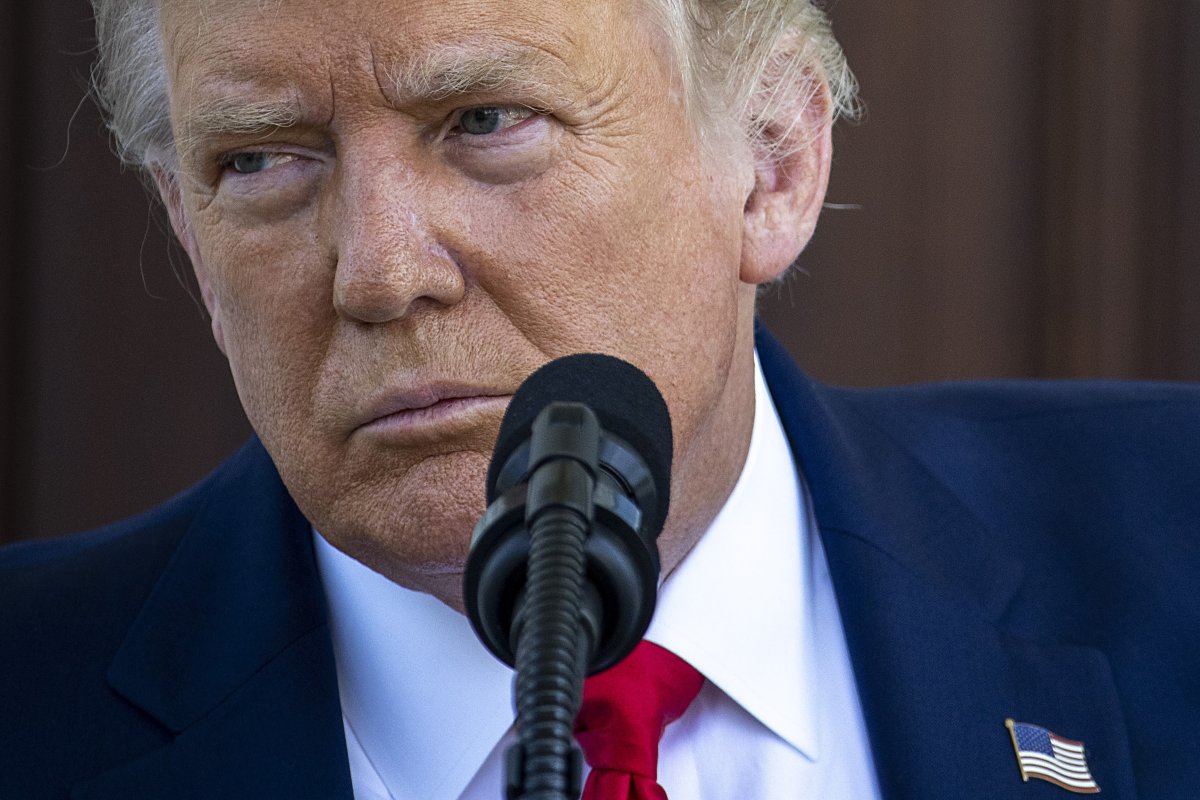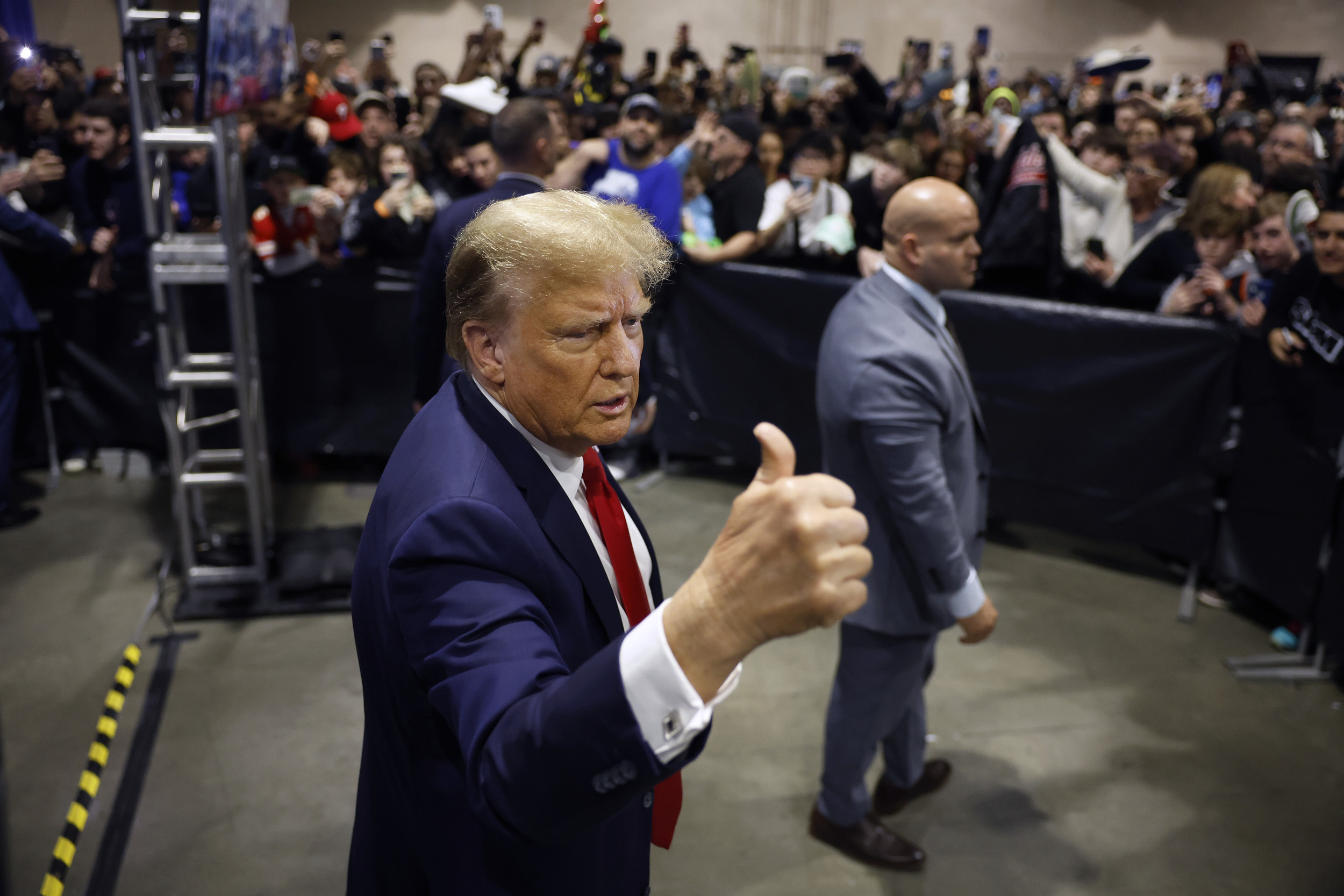President Donald Trump's difficult week with the military got a little worse on Monday, when the commander in chief accused the Pentagon leadership of pushing for conflicts in order to keep defense contractors profitable.
The president later shared tweets comparing himself to former President Dwight Eisenhower, who warned Americans about the rising power of the military-industrial complex in a 1961 speech marking the end of his time in office.
Trump has long framed himself as a staunch ally of the military and claimed enduring support among service members for his administration. The president has pushed to expand America's gargantuan military budget and repeatedly bragged about the strength of the U.S. armed forces.
But the president has also grappled with multiple military controversies, accused of using service members as political props, criticized for maligning prominent veterans, putting troops in harm's way unnecessarily and, according to an Atlantic report last week, dismissing U.S. war dead as "losers."
Trump rejected the allegations, though multiple reports at outlets including the Associated Press, The Washington Post, and even Fox News—which has been largely deferential to the president—confirmed the Atlantic story in part or in full.
On Monday, Trump took aim at the Pentagon top brass during a press conference at the White House. "I'm not saying the military's in love with me," Trump told reporters.
"The soldiers are, the top people in the Pentagon probably aren't because they want to do nothing but fight wars so that all of those wonderful companies that make the bombs and make the planes and make everything else stay happy."
The remarks prompted a flurry of reports and social media comments describing Trump's attack as unprecedented and politically unwise, given the president's recent struggle to maintain his pro-military image.
Trump then retweeted multiple posts comparing him to Eisenhower, who in 1961 said: "This conjunction of an immense military establishment and a large arms industry is new in the American experience."
Though he acknowledged the "imperative need for this development," Eisenhower warned of the "grave implications" of its growth. "In the councils of government, we must guard against the acquisition of unwarranted influence, whether sought or unsought, by the military-industrial complex. The potential for the disastrous rise of misplaced power exists, and will persist."
Trump retweeted a post from Mollie Hemingway, a senior editor at the right-wing Federalist website, who said: "You are free to dislike and hysterically respond to any and all criticism of the military-industrial complex. You are not free to claim that it's unprecedented for a president to critique it."
Trump also retweeted a thread from reporter Glen Greenwald, now of The Intercept, who said Eisenhower "had 16 minutes on TV to warn Americans of what he thought they most needed to know, and used it primarily to emphasize the dangers of Pentagon growth, weapons spending, and the threats of Endless War."
Trump seemingly wants to claim Eisenhower's legacy in his latest spat with the military, but the president has been happy to sell American weapons around the world. Major deals between U.S. manufacturers and foreign nations have become a key element of his foreign diplomacy.
When Saudi Crown Prince Mohammed bin Salman visited the White House, for example, Trump had posters made detailing the value of Saudi arms purchases and how many American jobs the contracts supported. The president has also publicly lauded American weapon deals with India, which he framed as a key element in bilateral ties with New Delhi.
The president has filled his administration with officials who have worked in or for major private sector companies, including prominent players in the military-industrial complex.
Defense Secretary Mark Esper, for example, was a long-time lobbyist for the Raytheon defense contractor, which has sold weapons to the Saudis that have been used to kill civilians in Yemen.
The president also has ties to Eric Prince, the founder of the notorious Blackwater private security company that was accused of a range of crimes during the occupation of Iraq. Prince has more recently pushed for his mercenaries to be deployed to replace U.S. troops in Afghanistan.
Prince's sister is Betsy DeVos—Trump's education secretary—and both are major GOP donors. Prince reportedly also tried to establish a secret back channel between Trump and Russian President Vladimir Putin.

Uncommon Knowledge
Newsweek is committed to challenging conventional wisdom and finding connections in the search for common ground.
Newsweek is committed to challenging conventional wisdom and finding connections in the search for common ground.
About the writer
David Brennan is Newsweek's Diplomatic Correspondent covering world politics and conflicts from London with a focus on NATO, the European ... Read more
To read how Newsweek uses AI as a newsroom tool, Click here.








